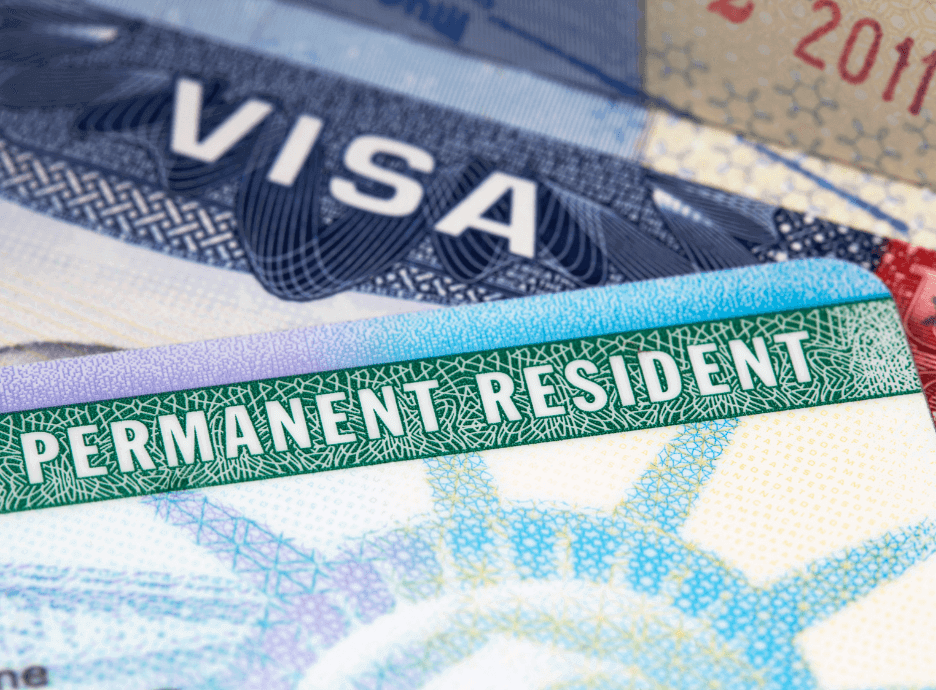Language:
Green Cards for International Startup Founders
Achieving permanent residency in the U.S. (in other words, getting a green card) is a goal shared by many people around the world. But U.S. immigration can be confusing. Luckily, our friends at Legalpad are here to simplify immigration. If you're a startup founder interested in getting a green card, this article is for you!

This is a guest post from our friends at Legalpad!
Achieving permanent residency in the U.S. (in other words, getting a green card) is a goal shared by many people around the world. But U.S. immigration can be confusing. Luckily, our friends at Legalpad are here to simplify immigration. If you’re a startup founder interested in getting a green card, this article is for you!
Green Card Timeline: When Should I Start My Green Card Application?
Getting a green card can be a lengthy process from start to finish. Even if you are not ready to start, it is never too early to consider your options.
The green card process varies based on several factors such as:
- Country of birth and priority date
- Shifting green card processing times
- Immigrant visa petition type
Green Card Process:
There are two steps to getting a green card. The first step is filing an immigrant visa petition, and the second is filing the green card application (also referred to as adjustment of status and I-485). Let’s go into each step in detail.
Step 1: Immigrant Visa Petition
Before you can file a green card application, you need to file an immigrant visa petition. Your immigrant visa petition qualifies you for a green card and effectively gets you a “spot in line” to file the green card application.
You can file an immigrant visa petition for marriage, employment, or humanitarian reasons. However, most startup founders get a green card based on their employment. The most common employment-based green card petitions for startup founders are the EB-1A and EB-2 NIW, which we will discuss in more detail below.
Step 2: Green Card Application
Filing an immigrant visa petition sets your priority date. This priority date is your “spot in line” to file your green card application once you are “current” on the visa bulletin. If you are already “current,” you can file your immigrant visa petition and green card application simultaneously. However, some founders choose to wait and file their green card application only after their immigrant visa petition is approved.
The EB-2 NIW and EB-1A for Startup Founders:
EB-2 NIW: Commonly referred to as EB-2 NIW, this is the employment-based second preference National Interest Waiver immigrant visa.
Why choose the EB-2 NIW:
The EB-2 NIW tends to be the best immigrant visa petition for startup founders. Why? Here are a few reasons:
- Waive the PERM: Typically, EB-2 applicants are required to go through the PERM labor certification process. The PERM process usually takes at least a year and requires posting jobs and gathering evidence to show no other qualified candidates exist. However, this process is waived for the EB-2 NIW, saving founders time and effort.
- High approval rates: The EB-2 NIW has a relatively high approval rate compared to the EB-1A.
- Flexible criteria for founders: The EB-2 NIW criteria (described in more detail below) are flexible and easily aligned with typical startup founder accomplishments.
Qualifying for the EB-2 NIW:
There are two parts to qualifying for the EB-2 NIW.
First, you must meet the EB-2 requirements by either having an Advanced Degree or meeting three of the six “Exceptional Ability” criteria.
Second, you must meet the three NIW requirements:
- Your proposed work in the U.S. has National Importance and Substantial Merit
When assessing an EB-2 NIW applicant, USCIS will be looking for evidence that their work will positively impact the U.S. You’ll want to pitch your startup to the USCIS in a similar way that you pitch to investors. Focus on highlighting your startup’s current and future impact on the U.S. economy, technological advancement, healthcare, education, etc.
- You are well-positioned to succeed
So, your startup will positively impact the U.S.? Next, USCIS questions how they can trust you will succeed in carrying out that impact. You can highlight your professional background and other factors that could indicate your startup’s success. For example, you could include a business plan, evidence of an existing customer base, evidence of VC funding, etc.
- It is beneficial for the U.S. to waive the PERM requirement
The third NIW criterion weighs whether it is beneficial to waive the PERM labor certification process, a year-long process usually required for EB-2s. You can explain that the PERM process is redundant since you are the company’s founder. You’ll also need to reiterate the importance of your work and its urgency.
EB-1A: Commonly referred to as EB-1A, this is the employment-based first preference immigrant visa.
Why choose the EB-1A:
The EB-1A is the most challenging immigrant visa petition to get approved. However, the advantage of the EB-1A is that it could save you years of waiting, depending on your country of birth.
Who qualifies:
To qualify for the EB-1A, you must first receive an internationally recognized prize or award, such as a Nobel Prize, Pulitzer, Oscar, or Olympic Medal, or meet three of ten Extraordinary Ability criteria.
In addition, the USCIS adjudicator assigned to your case must also be convinced that you have sustained national or international acclaim in your field.
Many of the EB-1A criteria align with startup founder accomplishments. For example, a founder’s EB-1A profile could include:
- Original Contributions: You invented patented technology that hundreds of thousands of people have used.
- Critical Employment: Earlier in your career, you held a critical role at a highly successful company, such as being a Director, VP, or C-Suite executive
- High Remuneration: At your previous company, you were paid well above your peers (think $300,000 USD or more)
- Judging: You have served as a panel judge at numerous internationally recognized tech events
- Published Material: Numerous articles are about you in top news outlets such as New York Times, Forbes, and CNN
Get started on your green card journey
Having worked with over five hundred startup founders, our friends at Legalpad are a brilliant resource for everything related to startup immigration. If you want to discuss your unique immigration situation with an expert, reach out to Legalpad.




